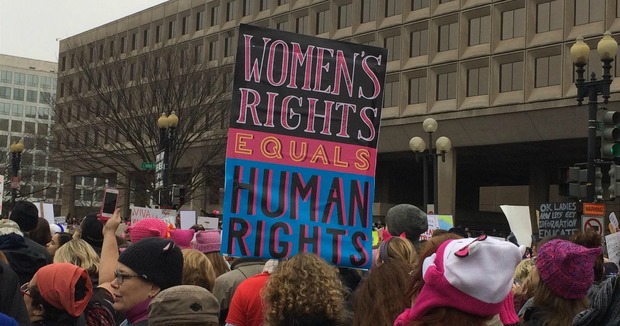From Greater Education Access to Higher Quality of Life, The Revolutionary Power of Birth Control
Originally posted on Ms. on Friday, September 24, 2021.
Unfettered access to the full range of contraceptive methods is critical to ensuring that everyone has the power to decide if, when and under what circumstances to get pregnant and have a child. Since the Federal Drug Administration (FDA) approved the birth control pill in 1960, it has gone on to approve 18 other contraceptive methods. From the IUD and implant to the patch, today contraception is an essential part of most people’s lives and contributes greatly to their ability to live life on their own terms.
Since becoming available, contraception has helped people complete higher education and pursue careers goals. In the late 1960s, before birth control was even legal for non-married women to use, women made up less than 5 percent of first-year law and business school classes. By the 1980s, the impact of birth control was clear as the share of women in law and business school increased to 57 percent and 39 percent respectively.
During this time, the share of women in medical school also nearly tripled, going from 10 percent to 42 percent. In addition, birth control is estimated to account for more than 30 percent of the increase in the number of women in skilled careers.
For many, birth control is a journey and access to all methods is critical so people can use the method that best suit their needs and lifestyle. For different reasons and throughout their lives, women use a median of three methods of birth control, and one third of women use five or more different methods during their lifetimes. In my practice, I encourage my patients to switch methods when their particular method no longer suits their needs. For example, some people have irregular work hours and might find an IUD works better for them than having to remember to take a pill at a particular time every day.
Contraception has also been instrumental in allowing people to manage health issues more broadly. Over 1.5 million women report taking birth control to help their well-being, and nearly six in 10 rely on their method at least in part for purposes other than pregnancy prevention. For people with chronic health conditions, contraception can be an effective way to manage migraines, severe acne, painful and heavy periods and PMS/PMDD symptoms, among other conditions. These conditions can often restrict a person’s ability to live productive lives and managing them can make a significant difference in their quality of life.
While it is important to raise awareness of birth control’s many benefits, we must also consider that birth control is not available equitably to all. Currently in the U.S., more than 19 million women of reproductive age in need of publicly-funded family planning live in contraceptive deserts—counties in which they lack reasonable access to a health center offering the full range of contraceptive methods. Further, in 2020, 12.6 percent of women aged 19–44 in the U.S. were uninsured, and consequently, face significant economic hurdles to birth control access.
There are measures states and the federal government can take to address these access gaps. By extending Medicaid to low-income adults, allowing pharmacists to prescribe contraception, ensuring telehealth policies are consistent with expanding access, and extending the supply of contraception dispensed at one time, we can help expand access and many states are pursuing these policies.
For example, 17 states (and the District of Columbia) have already passed laws that allow pharmacists to directly prescribe hormonal contraception such as the pill, patch, ring or shot. Pharmacist-prescribed contraception is convenient, bypasses often unnecessary but always costly provider visits and eliminates gaps in contraceptive coverage that can lead to unplanned pregnancies.
Ultimately, FDA approval of an over-the-counter option for birth control pills would also significantly increase access, especially for people who are too often inadequately served by the current medical system such as people of color, people living in rural areas and those navigating the world with lower incomes. Finally, we must increase and strengthen funding for the Title X Family Planning Program to help those struggling to make ends meet access the contraception they need.
We mark World Contraception Day by celebrating birth control’s contribution to people’s lives but existing gaps impede some from accessing the full range of contraceptive methods they need and deserve. By supporting efforts like BCBenefits we can help someone cover the costs associated with birth control and in turn take control of their life.
Access to birth control provided me with life-enriching experiences, the ability to pursue my career of choice, and plan for my family on my timeline. Everyone—regardless of who they are and where they live—should be able to do the same.


